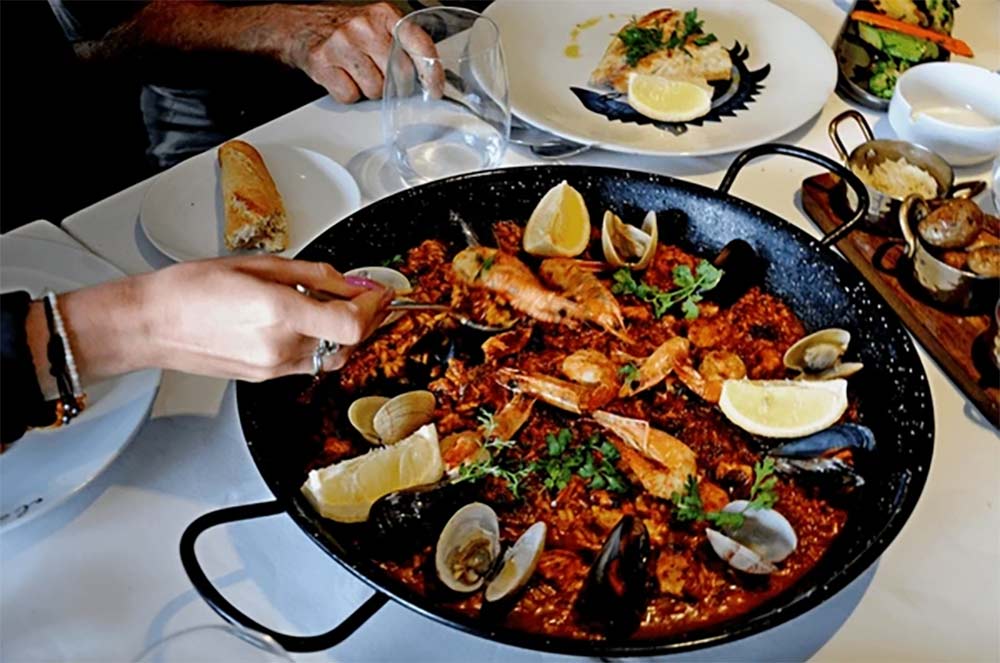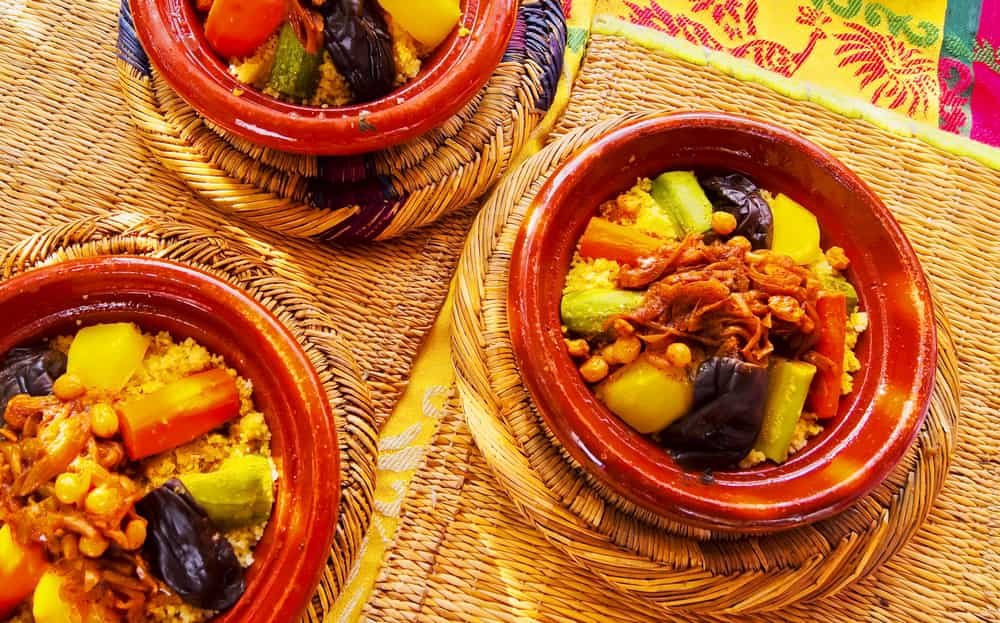Morocco is a land of vibrant colors, rich history, and diverse culture. One of the best ways to explore this beautiful country is through its food. Moroccan cuisine is famous for its bold flavors, aromatic spices, and unique cooking methods. Culinary tours in Morocco offer a perfect blend of tasting delicious food, learning cooking secrets, and exploring bustling markets.
Imagine walking through lively markets filled with fresh produce, spices, and local delicacies. You can watch skilled chefs prepare traditional dishes and even try your hand at cooking. These tours are more than just about food; they are about experiencing the culture and traditions of Morocco.
Each city in Morocco offers a different culinary adventure. From the bustling streets of Marrakech to the coastal flavors of Essaouira, there is something for every food lover. You will taste everything from sweet pastries to savory tagines, all while learning about the history and traditions behind each dish.
Culinary tours also include visits to local markets, where you can see and buy fresh ingredients. These markets are a feast for the senses, with vibrant colors, rich aromas, and a lively atmosphere. You will discover the secrets of Moroccan spices, learn how to pick the best produce, and maybe even find some unique souvenirs to take home.
Cooking classes are another highlight of these tours. Imagine learning to make a traditional Moroccan tagine or a sweet and flaky pastilla. You will get hands-on experience and take home new skills to impress your friends and family.
Unique Culinary Experiences

Food Tastings
Food tastings are an exciting part of any culinary tour in Morocco. They allow you to sample a wide variety of dishes, each with its unique flavors and ingredients. Moroccan cuisine is known for its rich use of spices such as cumin, coriander, saffron, and cinnamon, which create complex and aromatic dishes.
One of the highlights of food tastings is trying a tagine, a slow-cooked stew made with meat (usually lamb or chicken), vegetables, and a blend of spices. The tagine is named after the earthenware pot in which it is cooked, which helps retain moisture and enhances the flavors. You might also taste couscous, a staple dish made from steamed semolina grains, often served with vegetables and meat.
Another must-try is harira, a traditional Moroccan soup made with tomatoes, lentils, chickpeas, and a variety of spices. It’s often served with dates and bread, especially during Ramadan. Then there’s pastilla, a sweet and savory pie made with layers of thin pastry, pigeon meat (or chicken), almonds, and powdered sugar. This unique combination of flavors is a true delight.
Sweet treats are also part of the experience. You’ll savor pastries like baklava, made with layers of phyllo dough, nuts, and honey, and chebakia, a sesame cookie shaped into a flower and coated with honey and sesame seeds. These tastings not only satisfy your taste buds but also provide a deeper appreciation of Moroccan culinary traditions.
Cooking Classes
Cooking classes in Morocco offer a hands-on way to learn about the country’s culinary heritage. These classes are usually led by experienced local chefs who share their knowledge and passion for Moroccan cuisine. You’ll start by learning about the key ingredients used in Moroccan cooking, such as preserved lemons, olives, and a variety of spices.
One popular dish you’ll likely learn to make is a tagine. The process involves layering meat, vegetables, and spices in the tagine pot and cooking it slowly to allow the flavors to meld together. You’ll also learn to make couscous, where you’ll be taught the proper steaming technique to achieve light and fluffy grains.
Pastry making is another highlight. You might make msemen, a flaky, layered bread that’s perfect with honey or jam. Or you could try your hand at making pastilla, learning to balance the sweet and savory elements to perfection.
Throughout the class, you’ll be encouraged to taste and adjust the flavors, gaining a better understanding of how each ingredient contributes to the final dish. By the end, you’ll have prepared a complete Moroccan meal that you can sit down and enjoy with your classmates, creating a communal dining experience that is a significant part of Moroccan culture.
Market Visits
Visiting local markets, or souks, is an essential part of the culinary tour experience. Moroccan markets are bustling hubs of activity, filled with vibrant sights, sounds, and smells. As you wander through the narrow alleys, you’ll encounter stalls piled high with fresh fruits and vegetables, mounds of colorful spices, and arrays of olives, nuts, and dried fruits.
One of the most striking features of these markets is the spice stalls. Here, you’ll find spices like saffron, turmeric, cumin, and paprika, all essential to Moroccan cooking. The vendors often create beautiful pyramids of spices, adding to the visual appeal. You’ll learn about the different uses of these spices and how they are blended to create the distinctive flavors of Moroccan dishes.
Another highlight is the fresh produce. You’ll see an array of fruits and vegetables, many of which are grown locally. You might sample fresh figs, dates, pomegranates, and citrus fruits, all bursting with flavor. You’ll also learn how to select the best produce and understand the importance of fresh ingredients in Moroccan cuisine.
The markets are also a great place to discover traditional Moroccan products like argan oil, made from the nuts of the argan tree, and preserved lemons, which add a unique tangy flavor to many dishes. These market visits provide an authentic glimpse into Moroccan daily life and the central role that food plays in it.
Marrakech Culinary Tour

The Marrakech Culinary Tour offers a unique blend of flavors and experiences. You’ll explore the famous Jemaa el-Fnaa square, where food stalls sell everything from grilled meats to fresh juices. You can try traditional dishes like mechoui, a roasted lamb dish, and msemen, a flaky, layered bread often eaten with honey or jam. The tour also includes a visit to a local cooking school, where you can learn to make a Moroccan meal from scratch. You’ll end the day with a feast, enjoying the fruits of your labor and the new friends you’ve made along the way.
Fes Culinary Tour
The Fes Culinary Tour takes you deep into the heart of the city’s ancient medina. Here, you’ll visit bustling markets filled with spices, nuts, and dried fruits. You’ll sample dishes like b’stilla, a pastry filled with pigeon meat and almonds, and rfissa, a chicken and lentil dish served with layers of thin, crepe-like bread. You’ll also get to visit a traditional bread oven, where locals bring their dough to be baked. The tour includes a cooking class, where you’ll learn to make a traditional Fassi dish and enjoy a meal in a beautiful riad, a traditional Moroccan house.
Essaouira Culinary Tour
The Essaouira Culinary Tour offers a taste of the city’s coastal cuisine. You’ll visit the vibrant fish market, where fishermen sell their fresh catch of the day. You can try grilled sardines, a local specialty, or enjoy a seafood tagine made with fresh fish, tomatoes, and spices. The tour includes a visit to a local bakery, where you can learn to make traditional Moroccan bread. You’ll also get to take a cooking class, learning to prepare a seafood feast that you can enjoy with a view of the ocean.
Agadir Culinary Tour
The Agadir Culinary Tour introduces you to the flavors of Berber cuisine. You’ll visit local markets to taste amlou, a spread made from almonds, honey, and argan oil, and berkoukes, a type of pasta made from semolina. The tour includes a visit to a traditional Berber village, where you can see how argan oil is made and try your hand at making it yourself. You’ll also take a cooking class, learning to prepare a traditional Berber meal that you can enjoy in a beautiful garden setting.
Rabat Culinary Tour
The Rabat Culinary Tour takes you on a journey through the capital’s diverse food scene. You’ll visit the medina to taste street food like maakouda, fried potato cakes, and sfenj, a type of doughnut. The tour includes a visit to a local market, where you can see and buy fresh ingredients. You’ll also take a cooking class, learning to make a traditional Moroccan meal that you can enjoy in a beautiful setting. The tour ends with a visit to a traditional tea house, where you can relax and enjoy a cup of Moroccan mint tea.
Tangier Culinary Tour
The Tangier Culinary Tour offers a taste of the city’s multicultural influences. You’ll visit the medina to try dishes like pastilla, a sweet and savory pie made with layers of flaky pastry, and harira, a hearty soup made with lentils, chickpeas, and tomatoes. The tour includes a visit to a local market, where you can see and buy fresh ingredients. You’ll also take a cooking class, learning to make a traditional Moroccan meal that you can enjoy in a beautiful setting. The tour ends with a visit to a traditional tea house, where you can relax and enjoy a cup of Moroccan mint tea.
Tips for Culinary Tours in Morocco

When planning a culinary tour in Morocco, there are a few things to keep in mind. First, be sure to bring comfortable shoes, as you’ll be doing a lot of walking. It’s also a good idea to bring a hat and sunscreen, as the sun can be strong. When visiting markets, be prepared to haggle for the best prices. It’s also important to be respectful of local customs and dress modestly, especially when visiting religious sites. Finally, be open to trying new foods and experiences. Moroccan cuisine is rich and diverse, and there is always something new to discover.
Conclusion
Culinary tours in Morocco offer a unique way to explore the country’s rich culture and traditions. From food tastings to cooking classes, each tour provides a deeper understanding of Moroccan cuisine. Whether you’re visiting Marrakech, Fes, Essaouira, Agadir, Rabat, or Tangier, you’ll experience the flavors and traditions that make Moroccan food so special. So why wait? Book your culinary tour today and take an unforgettable journey through the tastes of Morocco.
